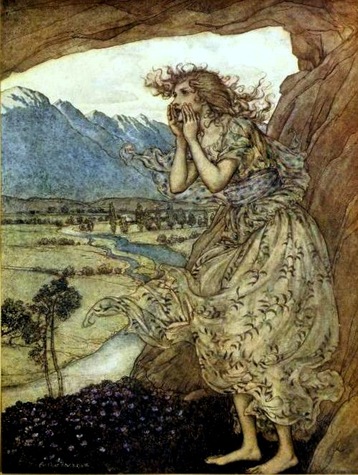
Find your echoes.
One of the qualities of good writing is the absence of echoes. An echo is a repeated word or phrase that the writer unwittingly uses. It can occur through several pages or throughout the entire book. It may be a pet word or crutch. But it echoes in the reader’s mind and can inhibit the fictional dream. It also conveys lack of skill and command of the craft. You the writer show up in the pages unintentionally.
Most echoes tend to be verb or subject related. Here’s an echo phrase from an actual published work, appearing within the same chapter:
John made his way into the hall / as he was making his way / dog made its way though the rain
Think of the options for “made his/its way.” John can tromp, stumble, weasel, head into the hall. The dog can lope, wander, trot, pant through the rain. The choices are nearly endless. Of course, the choices here would be based on John’s (and the dog's) character and situation.
As you eliminate echoes your writing becomes more lively and succinct. You find new ways of saying things. You’ll often exchange wordiness for a single word.
I've noticed that one popular fantasy author’s characters are always “chewing” their lips when anxious. Besides being cliché, it becomes ludicrous and annoying. Especially when all the characters do it. After a while, you don’t take the work seriously.
Watch those words that are distinct; they should be used sparingly. For example, I’m aware that one of my pet words is “glimmer.” To be sure I have kept the word or even a form of it at a minimum—and by that I mean no more than twice in a novel—I use the finder in my word program.
One exception to echoes is dialogue. Characters can use the same words or phrases habitually; it’s likely they’ll be more believable and identifiable when they do.
Always read your work aloud—the echoes will be more obvious.
A final note. Echoes are not to be confused with purposeful repetition. What would A Tale of Two Cities be without it? “It was the best of times, it was the worst of times …” In such a case, the repetitive phrase creates authority, style, contrast, and rhythm. It’s the best of writing.
art: Arthur Rackham's "Echo" from Comus by John Milton
 RSS Feed
RSS Feed